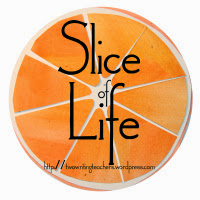Last month I travelled with DIY Literacy Teaching Tools for Differentiation, Rigor, and Independence by Kate Roberts and Maggie Beattie Roberts, enjoying it all. I had recently heard Kate speak at our local Literacy Connection session and wanted to dig in deeper. If you are looking for a little professional nudge, over the upcoming winter break then this book might be for you to look at. I felt more positive, hopeful, and gathered some tips to make my own work and the work of my students more meaningful.
These are nudges I found to try within my own work.
- start demonstration notebooks to show students how during conferencing and not just in literacy, try one for math
- get the teaching tools off the walls and into the hands of students with bookmarks
- personalize bookmarks with strategies and steps to help students own the learning
- carefully think about the how to demonstrate bigger strategy ideas
- try micro-progression to show the desired outcome and journey learners can take
"True learning happens when students get the instruction that fits their needs, have the agency and motivation to work hard, and remember and recycle what they've learned."
"Research also shows that people who write down their goals and share them with others are 33 percent more successful in accomplishing these goals."
"Each tool focuses on a skill students need (what they need to learn to do better) and strategies (ways to help students learn and perform that skill on their own).
"Your students can be more thoughtful about what strategies they use in their reading and writing, and they can hold onto your teaching as time goes on. They just need a little help."
"When we find ways to differentiate our teaching the conserve our energy, we are able to do more than just deliver lessons."




